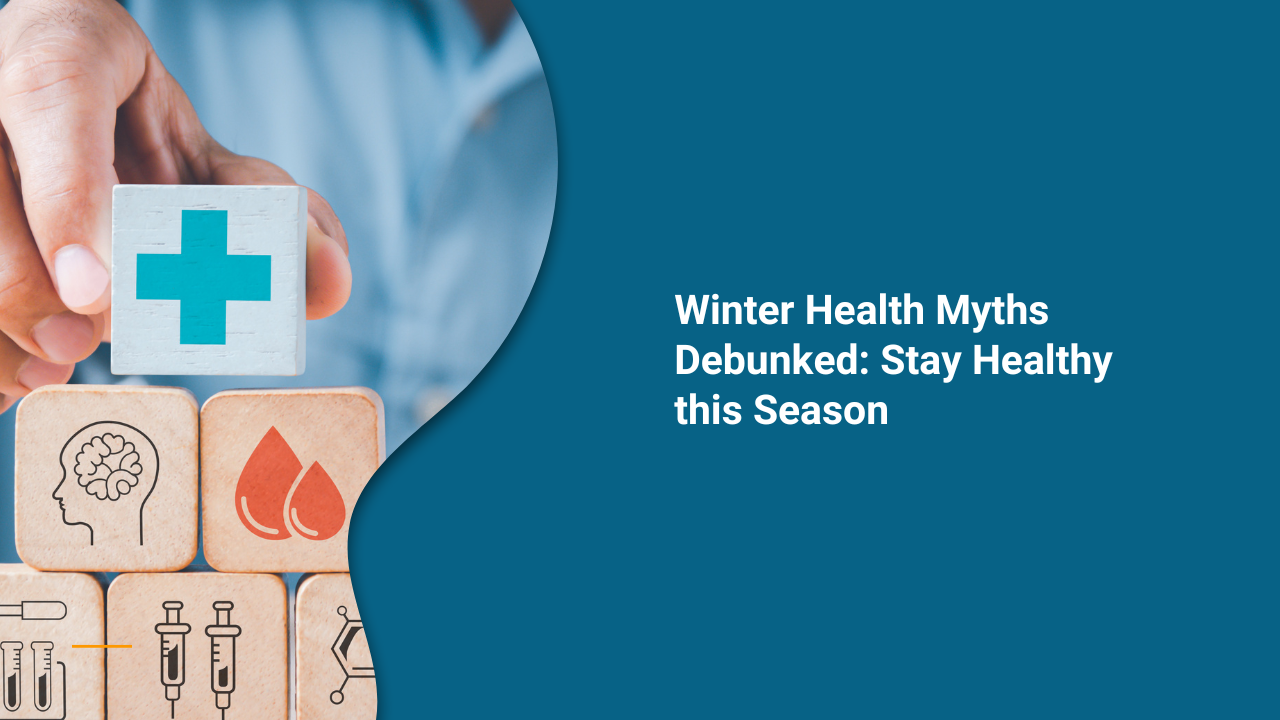As winter blankets the world in a glistening layer of snow, the season often brings with it a flurry of health advice, some of which may be more fiction than fact. From old wives’ tales to well-intentioned advice, it’s essential to sift through the myths to ensure you’re taking the right steps to stay healthy during the winter months. In this article, we’ll debunk common winter health myths and provide evidence-based strategies to help you navigate the season without falling victim to misinformation.
Winter Health Myth 1: Cold Weather Causes Colds
One of the most enduring winter health myths is the belief that exposure to cold weather directly causes the common cold. However, the common cold is primarily caused by viruses, most commonly rhinoviruses. Cold weather itself does not increase the likelihood of catching a cold. Instead, the viruses responsible for colds tend to thrive in lower humidity, which is often associated with colder temperatures.
Debunked: To protect yourself from colds, focus on good hygiene practices such as frequent handwashing, avoiding close contact with sick individuals, and maintaining a healthy immune system through a balanced diet, regular exercise, and adequate sleep.
Winter Health Myth 2: You Lose Most of Your Body Heat Through Your Head
The notion that you lose the majority of your body heat through your head is a pervasive myth. While it’s true that heat loss can occur through any exposed part of the body, the head does not account for a disproportionately large amount of heat loss. This myth likely originated from a misinterpretation of a military study conducted in the 1950s, where participants were exposed to cold temperatures without proper headgear.
Debunked: To stay warm in winter, it’s important to dress appropriately by wearing layers, including a hat, to minimize heat loss from any exposed body parts.
Winter Health Myth 3: Going Outside with Wet Hair Makes You Sick
The belief that going outside with wet hair will make you sick is a classic winter myth. Colds and flu are caused by viruses, not by exposure to cold or wet conditions. While being in the cold may make you feel chilly, it won’t directly lead to illness.
Debunked: While wet hair in cold weather might be uncomfortable, it doesn’t increase your risk of getting sick. To stay comfortable in winter, dry your hair thoroughly before heading outside, and dress warmly to prevent heat loss.
Winter Health Myth 4: You Don’t Need Sunscreen in Winter
It’s a common misconception that sunscreen is only necessary during the hot summer months. However, harmful UV rays from the sun can still cause damage to your skin in winter, especially at higher altitudes or in regions with intense snow reflection.
Debunked: Apply sunscreen with at least SPF 30 to exposed skin, especially your face, hands, and any other uncovered areas, to protect against UV rays and prevent sun damage.
Read: Unmasking ADHD: 6 Work Habits That Might be Red Flags
Winter Health Myth 5: Allergies Only Occur in Spring and Summer
While many people associate allergies with blooming flowers and pollen in the spring and summer, indoor allergens, such as mold, dust mites, and pet dander, can be just as prevalent in winter. Spending more time indoors with closed windows and doors can exacerbate allergic reactions.
Debunked: Take steps to reduce indoor allergens by regularly cleaning and vacuuming, using air purifiers, and maintaining proper ventilation. If necessary, consult with an allergist to identify specific triggers and develop a management plan.
Winter Health Myth 6: You Don’t Need to Stay Hydrated in Cold Weather
In colder weather, people often underestimate the importance of staying hydrated. The dry winter air can lead to increased fluid loss through respiration, and the perception of thirst may be diminished in colder temperatures.
Debunked: Stay well-hydrated by drinking an adequate amount of water throughout the day, even if you don’t feel as thirsty as you would in warmer weather. Herbal teas and warm beverages can also contribute to your overall fluid intake.
Winter Health Myth 7: Antibiotics Cure the Flu and Colds
There’s a widespread misconception that antibiotics are effective in treating viral infections like the flu and the common cold. In reality, antibiotics target bacteria, not viruses.
Debunked: The flu and colds are caused by viruses, and antibiotics are not a cure for these illnesses. Rest, hydration, and over-the-counter medications to alleviate symptoms are generally the recommended approaches. Consult with a healthcare professional for guidance on managing symptoms.
Winter Health Myth 8: You Can’t Get Sunburned in Winter
While the sun may not feel as intense in winter, the risk of sunburn still exists, particularly in regions with snow. Snow can reflect up to 80% of UV radiation, significantly increasing the potential for sunburn.
Debunked: Protect your skin by applying sunscreen to exposed areas, even on cloudy winter days. Wear protective clothing and sunglasses to reduce the risk of sunburn and protect your eyes from UV rays.
Conclusion
As winter settles in, it’s crucial to separate fact from fiction when it comes to health advice. By debunking common winter health myths, individuals can make informed decisions to stay healthy and well throughout the season. Focus on maintaining good hygiene practices, dressing appropriately for the weather, staying hydrated, and protecting your skin from the sun to ensure a healthy and enjoyable winter experience. Remember, an evidence-based approach is the key to navigating the winter months with confidence and well-being.
Note: These are some general suggestions. In some kind of medical emergency, consult with your doctor.













